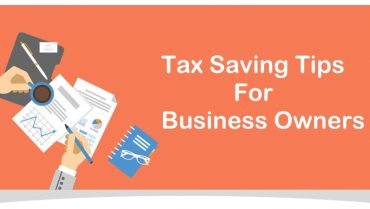 You’ll have to deal with a fair amount of paperwork before opening your new business. In addition to registering your business and finding out whether you need a tax ID number, you may need local, state and federal business licenses and permits. This is a basic checklist of items to consider as you set up your business.
You’ll have to deal with a fair amount of paperwork before opening your new business. In addition to registering your business and finding out whether you need a tax ID number, you may need local, state and federal business licenses and permits. This is a basic checklist of items to consider as you set up your business.
Register Your Business
If you have a limited liability company, a corporation or a limited partnership you will need to register your business with your state authorities.
If you form a sole proprietorship or a general partnership, you generally don’t need to register your business entity with the state.
In most cases a sole proprietorship registration is handled through the county and/or city where your business is based, and there may be state and city permits or licenses required for operation. If sole proprietors opt to incorporate their business or to form an LLC or a limited partnership, then state registration is required. Businesses usually register with their state’s department of corporations, division of corporations or the secretary of state.
Get a Federal Employer ID Number
Businesses that are incorporated or structured as a partnership, LLC, C Corporation or S Corporation must obtain a federal employer identification number (EIN) that will be used as its taxpayer identification number. Under certain circumstances, a sole proprietorship must also have an EIN, but usually, sole proprietors can use their Social Security number as their business taxpayer identification number.
Register Your Business Name
Business names are registered with state or county authorities. Your business name will be registered with the state when you register an LLC or incorporate your business.
When sole proprietors register their businesses with local or state authorities, their names become their business names by default.
Sole proprietors can also apply for a fictitious name — also known as a DBA, which stands for “doing business as” — with their city or county clerk’s office, which means they are registering their business under something other than their real names.
For example, Jane Doe applies for a business license. Her company will be registered as Jane Doe unless she decides she wants to use another name. If she wants her company to be called Jane Doe Creations, she will have to register for a fictitious name.
Before you register your business name, check to see whether someone is already using the name in your jurisdiction. If you’re thinking of creating a Web site for your business, be sure to choose a unique business name so that it isn’t confused with another company. Check online to see if a Web domain with the name you want for your business is available.
Essentials of Business Licenses
Most city, county and state governments require business licenses. The federal government may also require you to secure special licenses, depending on your industry type. Here are some business licenses you may have to obtain:
Local business licenses: Most every business will need a county or city business license to legally operate within those locales. Fees usually are reasonable and the business licenses easy to obtain.
State business licenses: These are issued to those selling products or services regulated by state law. There are special state licenses for doctors, lawyers, barbers, mechanics, building contractors and other professionals who require certification. Businesses required to meet state standards or codes, like restaurants and other establishments that serve alcohol, also need state business licensing.
Sales tax licenses: Nearly all states require a sales tax license or permit for all retail businesses, which allow you to charge your customers a sales tax.
Federal business licenses: Most businesses won’t need federal licensing, but certain highly regulated industries such as drug manufacturing, investment advice, and selling alcohol, tobacco or firearms require the approval of the federal government.?
Essentials of Business Permits
Many businesses are also required to obtain business permits that generally regulate the safety and appearance of an establishment, as defined by local and/or state laws.
There are various business permits you may need, including:
Seller’s permits: When you’ll be purchasing wholesale merchandise for resale.
Building permits: If you plan on remodeling or building a commercial space.
Health permits: Needed when preparing food as part of your business. Health permits could be required by the state or the county, depending on where you live.
Zoning permits: When showing your business site is properly zoned for the use you have in mind.
Home occupation permits: If your business is home-based.
Credit – Thebalance


